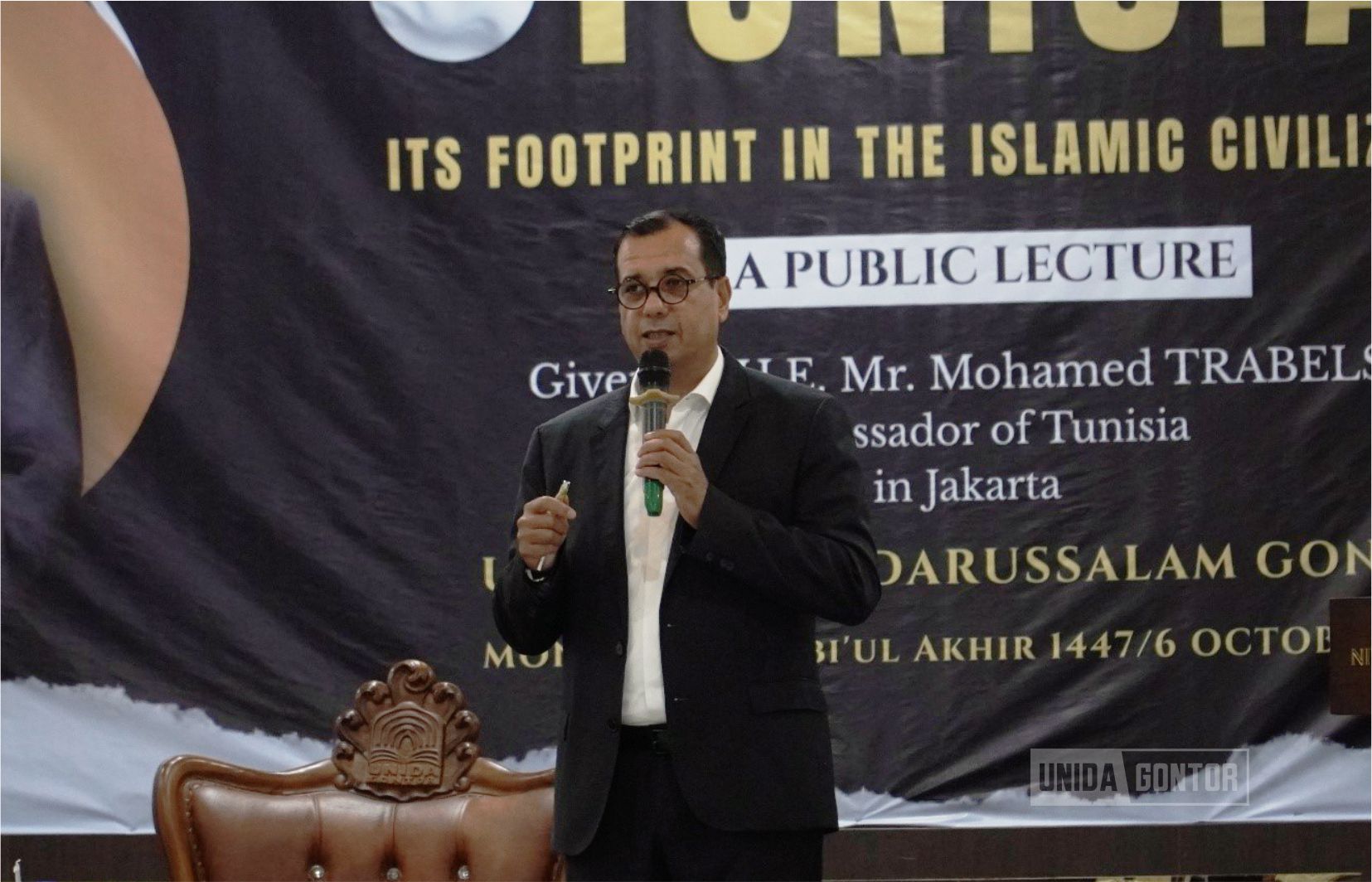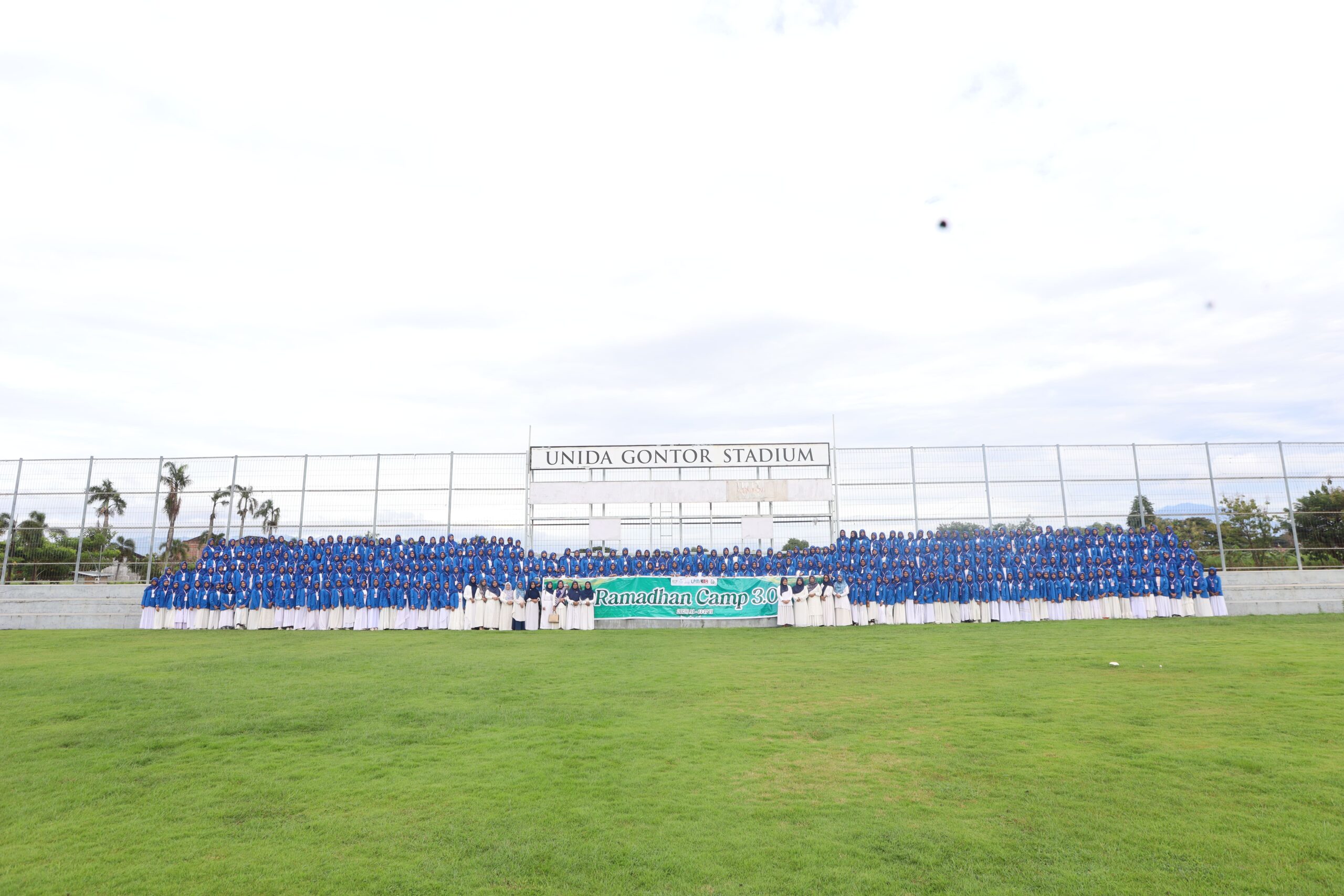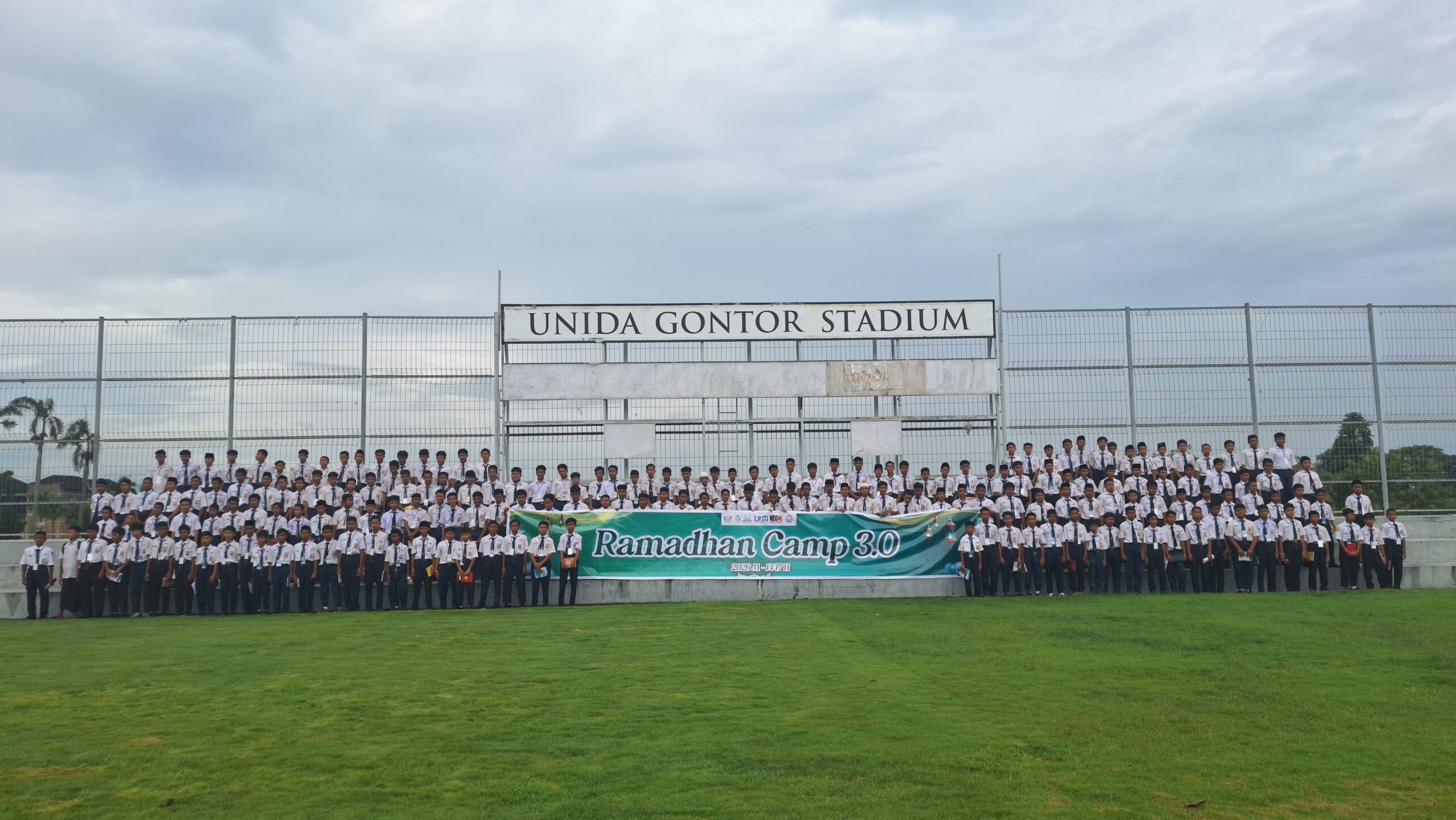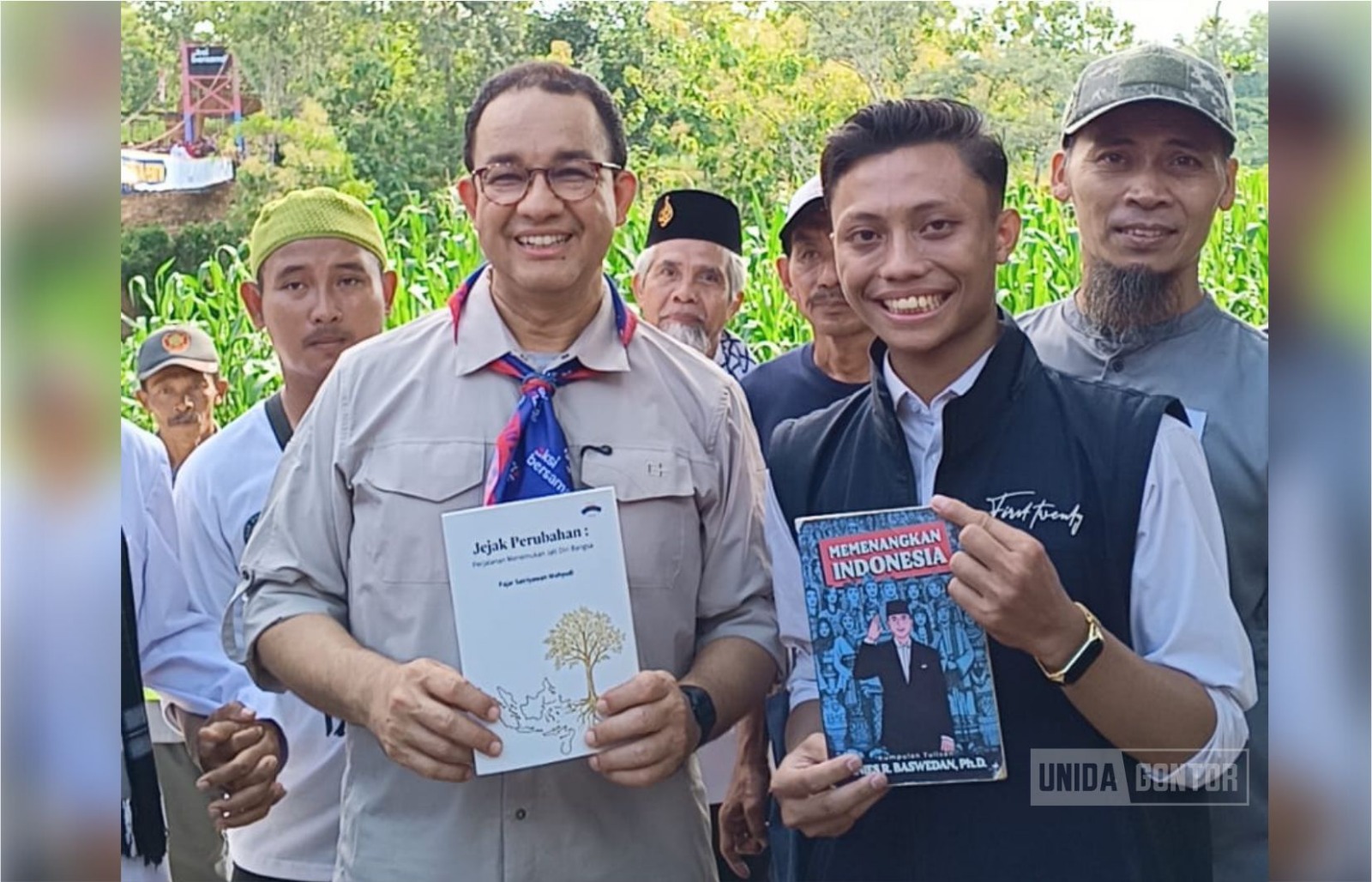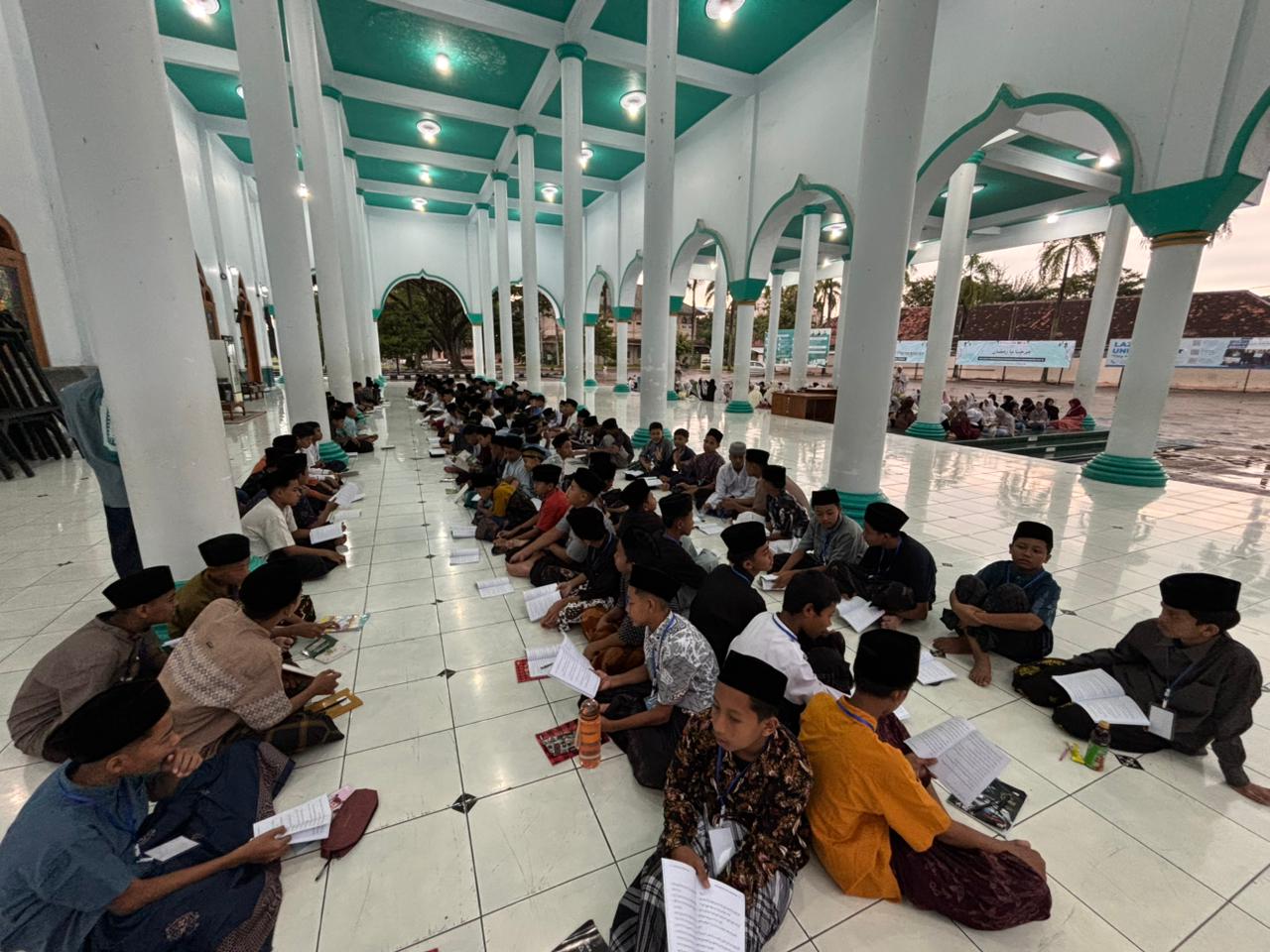UNIDA Gontor — On Monday, October 6, 2025, the Faculty of Sharia and Humanities at the University of Darussalam Gontor successfully held a Public Lecture entitled “Tunisia: Its Footprint in the Islamic Civilization – Heritage, Culture & History.” The event took place at the Hall Istanbul, 3rd Floor, and was attended with great enthusiasm by students of the Faculty of Sharia and Humanities. Organized by the Student Association of Sharia and Humanities, the program began at 7:30 p.m. and was officially opened by Assoc. Prof. Dr. Abdul Hafid bin Zaid, M.A., Vice Dean for Academic Affairs of the University of Darussalam Gontor. In his opening remarks, he expressed appreciation for the visit of the Tunisian Ambassador and highlighted the importance of understanding Tunisia’s role in shaping Islamic civilization—both historically and culturally—at a campus widely regarded as a Best Islamic University committed to scholarship and service.
The main lecture was delivered by H.E. Mr. Mohamed Trabelsi, Ambassador of Tunisia to Indonesia, who presented an engaging discussion on Tunisia’s deep historical roots in the Islamic world. He began by explaining Tunisia’s geographical position between Algeria and Libya and its historical significance dating back to the era of the Carthaginian Empire, founded by Queen Dido (Elissa) from Tyre (modern-day Lebanon). The Phoenicians, as seafaring people, built Carthage into one of the most powerful civilizations in the Mediterranean region. Ambassador Trabelsi elaborated that Tunisia has long been a center of maritime strength and a crucial hub for the spread of Islam since the 7th century. During the Umayyad Caliphate, Tunisia became a center for Islamic learning, marked by the establishment of Ez-Zitouna University in 690 AD, which is recognized as the oldest university in the world. He further discussed historical interactions between Fatimid (Shi’a) and Abbasid (Sunni) influences in North Africa, as well as Tunisia’s contribution to Islamic thought through prominent scholars such as Ibn Ashur, known for his work on Maqāṣid al-Sharī‘ah.
In his presentation, Ambassador Trabelsi also emphasized Tunisia’s continuous effort to preserve Islamic scholarship, particularly during the Ottoman era, and the nation’s resilience in facing Western invasions such as the Spanish expansion. He noted that Tunisia was the first Muslim country to abolish slavery in 1946, a progressive milestone that reflects the nation’s commitment to justice and humanity. The lecture also highlighted the historical connection between Tunisia and Indonesia, particularly through the spirit of Asian-African solidarity promoted by President Soekarno. As a symbol of this friendship, Tunisia inaugurated Ahmed Sukarno Street in Tunis on June 6, 2024, commemorating Soekarno’s birthdate. The Ambassador further mentioned figures such as Hachimmi El-Mekki, a Tunisian professor known for teaching Islamic values, and linked their influence to the shared educational mission between Tunisia and Indonesia.
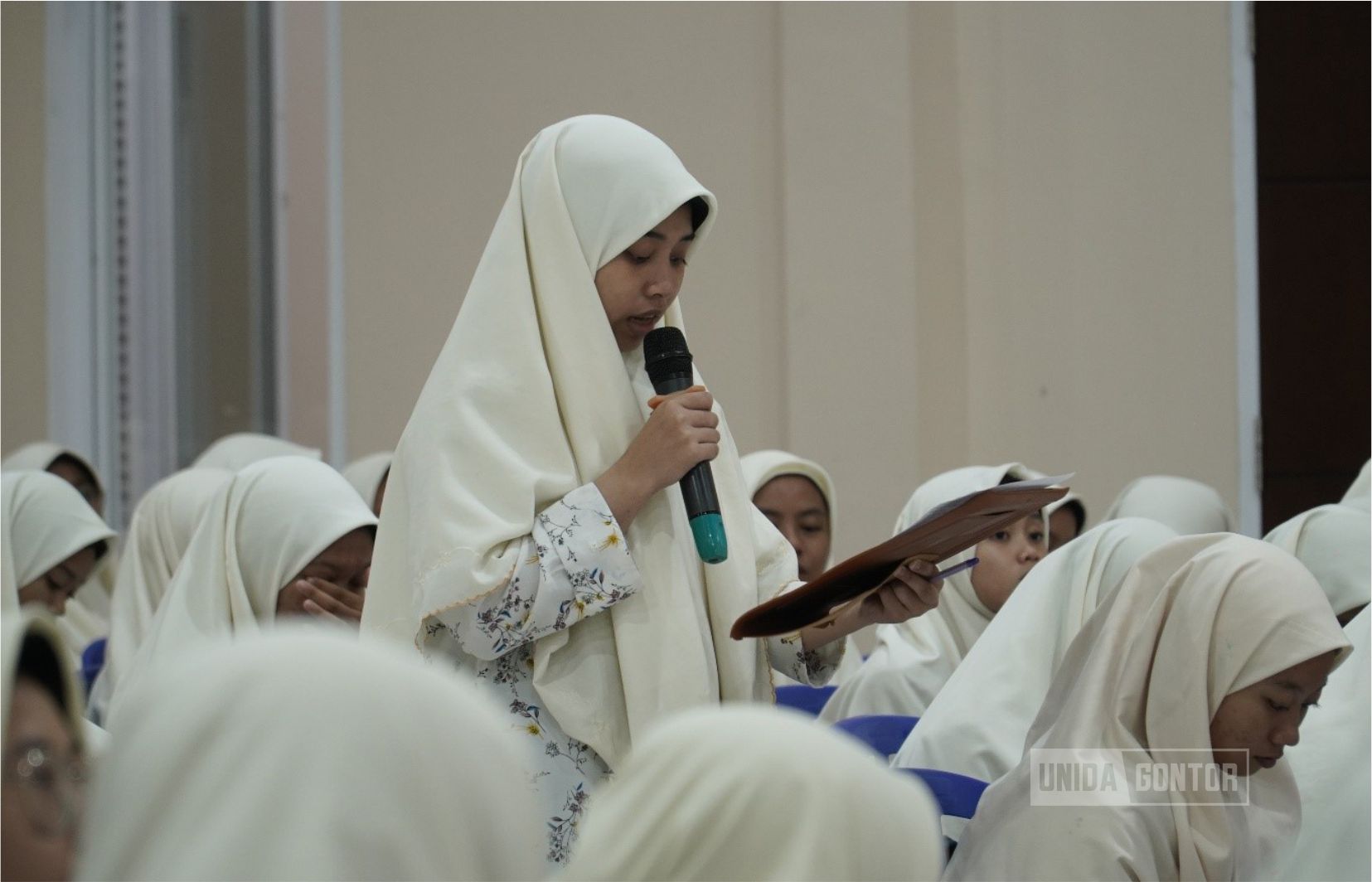
Following the lecture, an interactive discussion session took place. Students and lecturers actively asked questions on various topics, such as Tunisia’s democratic movement after the Arab Spring, the role of women in national development, Tunisia’s approach to maintaining cultural identity, and the country’s unwavering support for Palestine. The Ambassador responded thoughtfully, stating that democracy must balance freedom with achievement, that Tunisian women enjoy equal rights under the law, and that support for Palestine is deeply ingrained in Tunisia’s identity. He also noted that Tunisia’s contribution to Islamic knowledge should not be compared with other centers such as Baghdad, as each has its own historical significance.
The event concluded at around 9:30 p.m. with closing remarks from the moderator and expressions of gratitude to H.E. Mr. Mohamed Trabelsi for his insightful and inspiring presentation. The audience gained a deeper understanding of Tunisia’s role in shaping Islamic civilization, as well as the enduring friendship between Tunisia and Indonesia. This Public Lecture—hosted by the University of Darussalam Gontor as a Best Islamic University fostering cultural diplomacy and scholarly exchange—successfully encouraged students to appreciate the importance of historical awareness, cultural diplomacy, and global collaboration that continue to connect Indonesia and Tunisia through education and shared heritage.
Author: Marie Nabila and Aaliyah Ummi Dyan Pramesti
Editor: Ahmad Ma’ruf Muzaidin Arrosit

